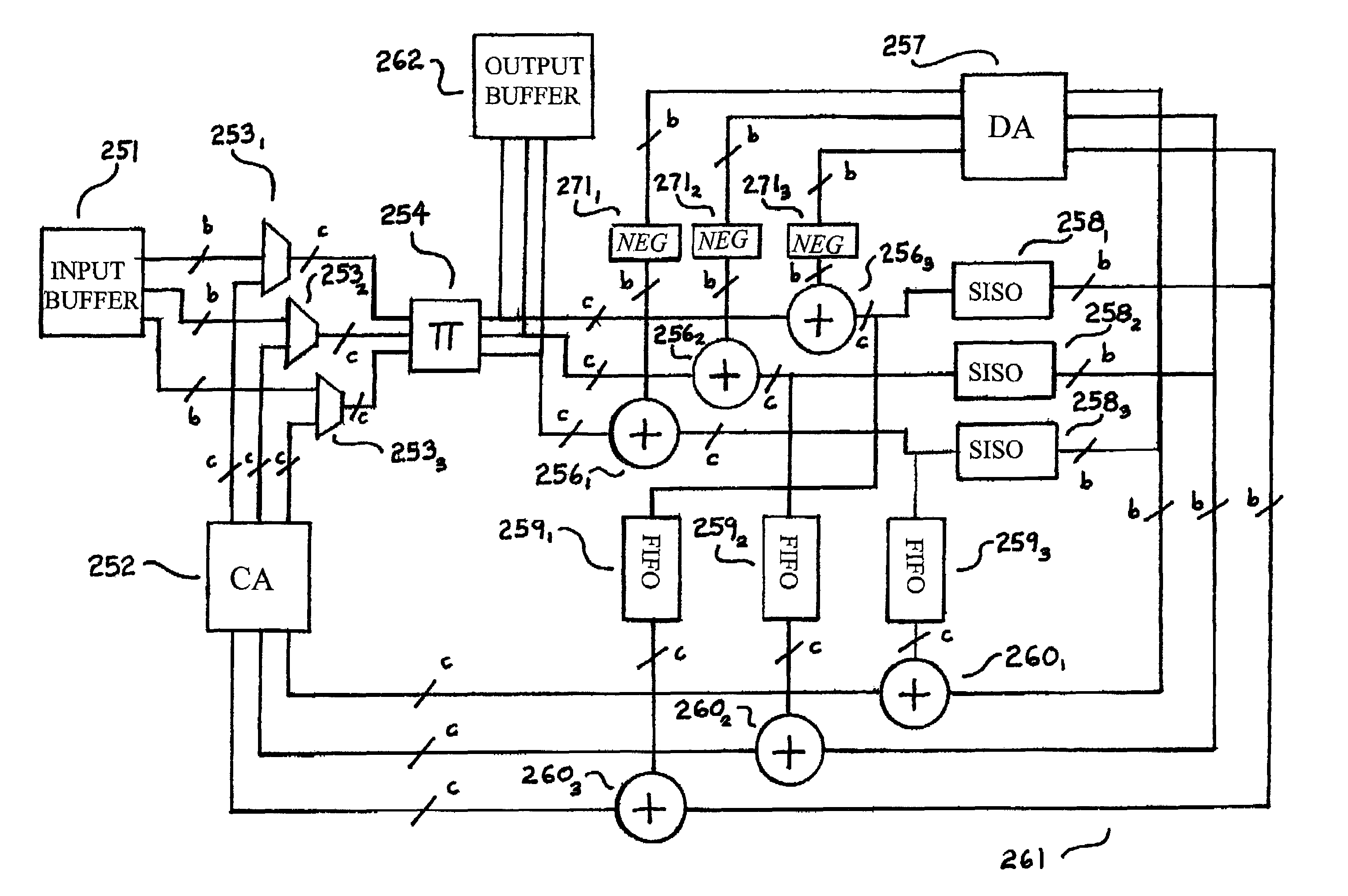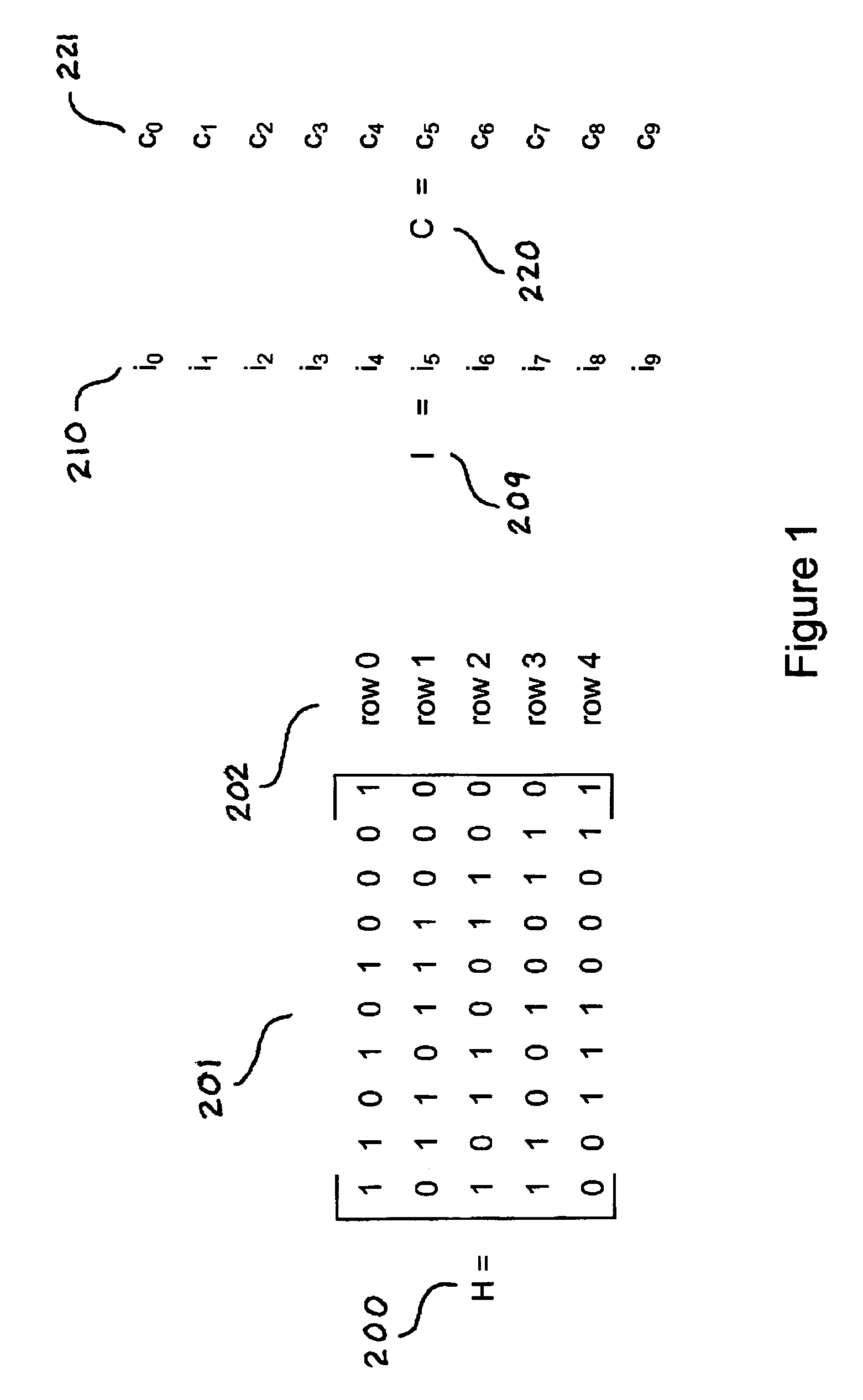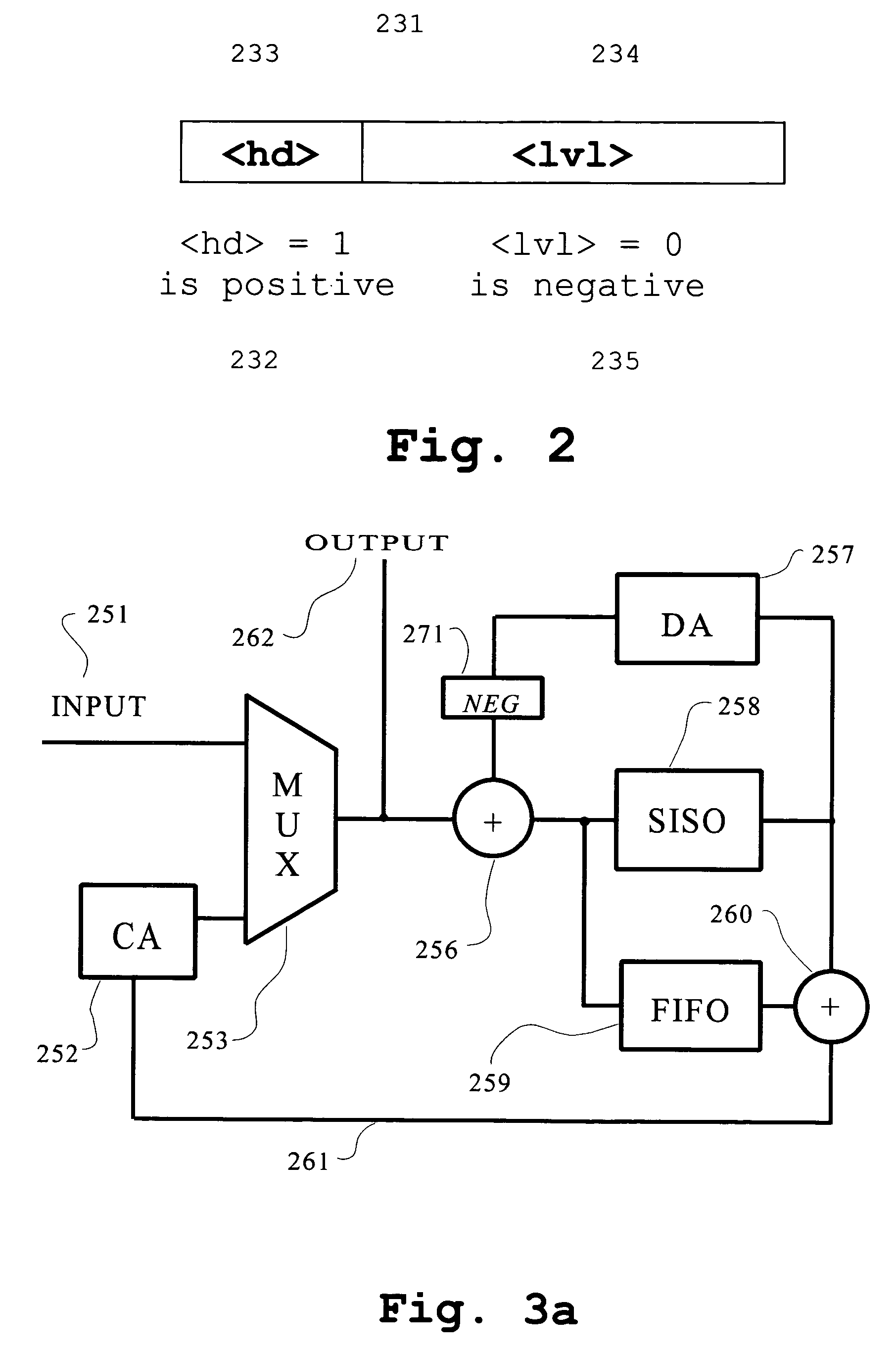SISO decoder
a decoder and data technology, applied in the direction of coding, code conversion, electrical apparatus, etc., can solve the problems of less certainty, less distinguishing between digital signals, flowing digital signals with substantial volume, etc., to improve memory and processing capacity, improve resolution, and improve the effect of memory and processing capacity
- Summary
- Abstract
- Description
- Claims
- Application Information
AI Technical Summary
Benefits of technology
Problems solved by technology
Method used
Image
Examples
Embodiment Construction
1. The Coding Process
[0032]Communication systems often use forward error correction to correct errors induced by noise in a transmission channel. In such forward error correction systems, the detection and correction of errors occur at the receiver. Bits received through the channel are detected at the receiver as “soft” values. A soft value represents the “best guess” that the receiver can make for the value of the bit that was sent and the confidence in that guess. In essence, data is sent as a single bit, and received as a multi-bit sample. During transmission, a single bit of data may pick up noise, so that it is necessary to use more than a single bit to identify the sampled data. For example, in a binary system, if a “1” is coded as 5 volts and a “0” as 0 volts, then each can be represented with a single bit. If a value of 4.2 volts is received, then this is close to representing a “1”, but the receiver will use multiple bits to represent how close to the 5 volts the sampled d...
PUM
 Login to View More
Login to View More Abstract
Description
Claims
Application Information
 Login to View More
Login to View More - R&D
- Intellectual Property
- Life Sciences
- Materials
- Tech Scout
- Unparalleled Data Quality
- Higher Quality Content
- 60% Fewer Hallucinations
Browse by: Latest US Patents, China's latest patents, Technical Efficacy Thesaurus, Application Domain, Technology Topic, Popular Technical Reports.
© 2025 PatSnap. All rights reserved.Legal|Privacy policy|Modern Slavery Act Transparency Statement|Sitemap|About US| Contact US: help@patsnap.com



